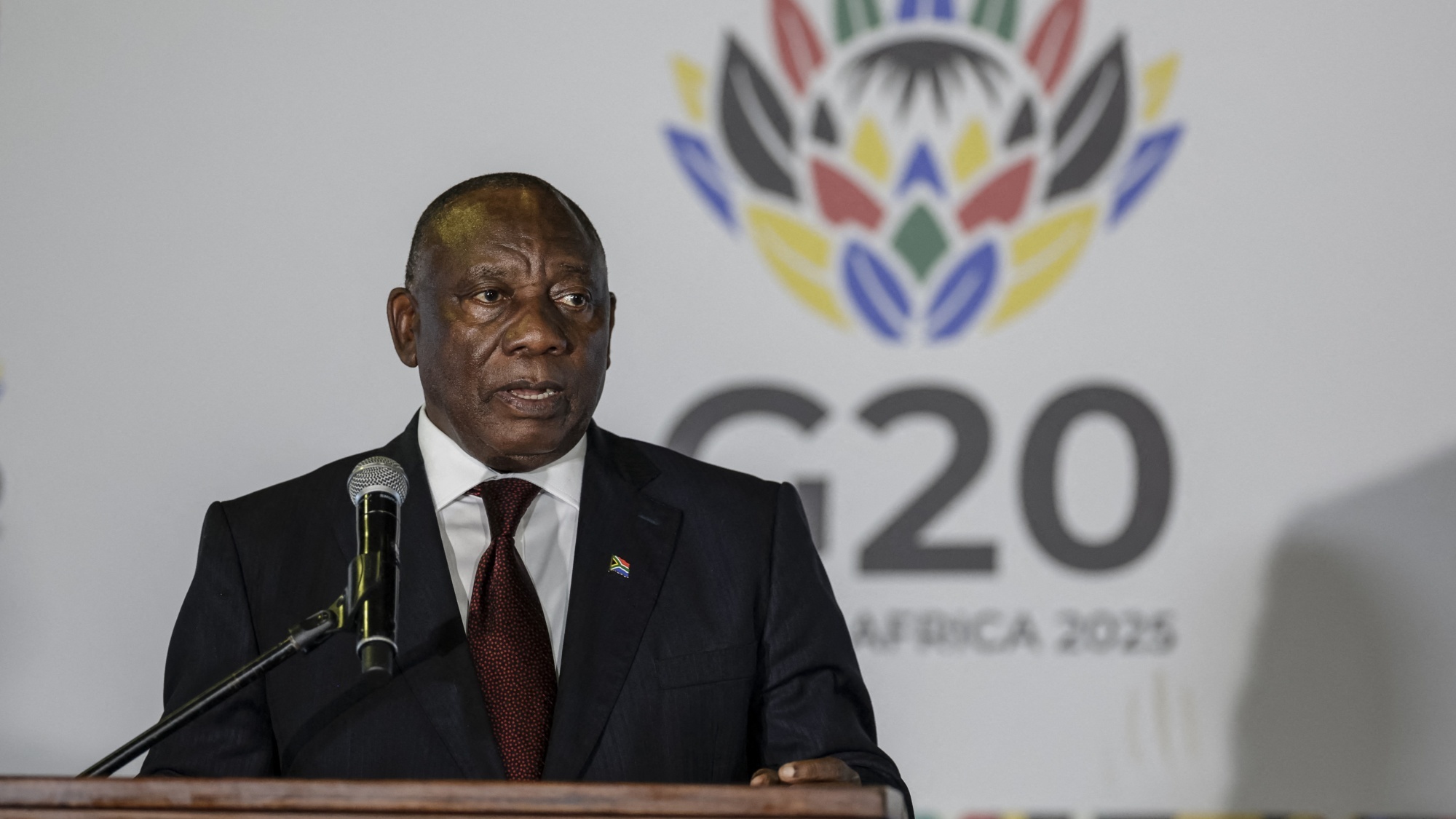
South African President Cyril Ramaphosa has inaugurated a pioneering G20 taskforce to address global wealth inequality, with a focus on its impact on growth, poverty, and multilateral cooperation.
- President Cyril Ramaphosa launched a G20 task force to address global wealth inequality.
- This initiative emphasises South Africa’s focus on developing nations’ challenges, such as debt and inequality, during its G20 leadership.
- Global wealth distribution disparities were highlighted, with the poorest half holding 2% of global wealth according to the World Inequality Report.
- The U.S. will not participate in South Africa-hosted G20 meetings due to policy disagreements, illustrating a shift in global alignments.
South African President Cyril Ramaphosa has inaugurated a pioneering G20 taskforce to address global wealth inequality, with a focus on its impact on growth, poverty, and multilateral cooperation.
The six-member panel, chaired by Nobel laureate Joseph Stiglitz, is set to present its findings at the upcoming G20 summit in Johannesburg this November.
This initiative underscores South Africa’s commitment to highlighting issues affecting developing nations, particularly in Africa, including rising debt, uneven growth, and widening inequality, during its G20 presidency.
DON’T MISS THIS: 9 African countries where citizens pay the highest passport fees
“South Africa’s G20 presidency today is proud to launch an initiative that will target this issue of global wealth inequality – a first for the G20 – and offer a practical way forward,” Ramaphosa said.
The President emphasised the detrimental effects of inequality, pointing to the unfair distribution of COVID-19 vaccines as a significant example.
“They see the impacts of rising food and energy prices, of debt, of trade wars, all driving this growing gap between the rich and the rest of the world, undermining progress and economic dynamism,” Ramaphosa said. “A new oligarchy in our global economy is becoming apparent.” He added
Stiglitz confirmed these concerns, noting that the task force aims to turn global frustration into actionable policy proposals. “Inequality was always a choice – and G20 nations have the power to choose a different path on a range of economic and social policies,” he said.
DON’T MISS THIS: Africa is becoming one of China’s favourite markets, and Trump may have helped
The task force’s launch coincides with renewed global attention on inequality. In October 2024, the Nobel Prize in Economics was awarded to Daron Acemoglu, Simon Johnson, and James A. Robinson, highlighting that income disparities among and within nations are as critical as climate change, the AI “revolution,” and ageing societies.
A growing global divide
According to the World Inequality Report, the poorest half of the world’s population owned just 2% of global wealth in 2021, while the richest 10% controlled 76%.
Although the income gap between the richest 10% of countries and the poorest 50% has narrowed from over 50 times in 1980 to less than 40 times today, inequality within countries has nearly doubled over the same period.
“It is a much-needed wake-up call. The wealthiest 20% of the world’s countries are now around 30 times richer than the poorest 20%,” the Royal Swedish Academy of Sciences noted. “And the gap is persisting even though poor countries have become richer”
Despite the significance of these discussions, the United States has confirmed its non-participation in the upcoming G20 meetings hosted by South Africa.
This decision marks a turn in relations between the two nations, attributed to disagreements over South Africa’s domestic policies, particularly land reform and racial issues.
DON’T MISS THIS: Zambia is set to track cosmic events and satellites with its new space tech
President Donald Trump and his allies have been increasingly critical of South Africa’s land expropriation law, which allows the government to seize land without compensation in certain cases.
Additionally, the U.S. has started to cut financial aid to South Africa, citing concerns over governance and foreign policy disagreements.
This move is likely to weaken U.S.-South Africa relations further, pushing Pretoria closer to China, Russia, and other BRICS nations.
The growing alignment of South Africa with alternative global governance structures reflects a larger shift in global power dynamics, where nations in the Global South seek to counterbalance Western influence.
Other taskforce members include UNAIDS Executive Director Winnie Byanyima and development economist Jayati Ghosh. The United States is set to assume the G20 presidency at the end of this year.
Olamilekan Okebiorun












